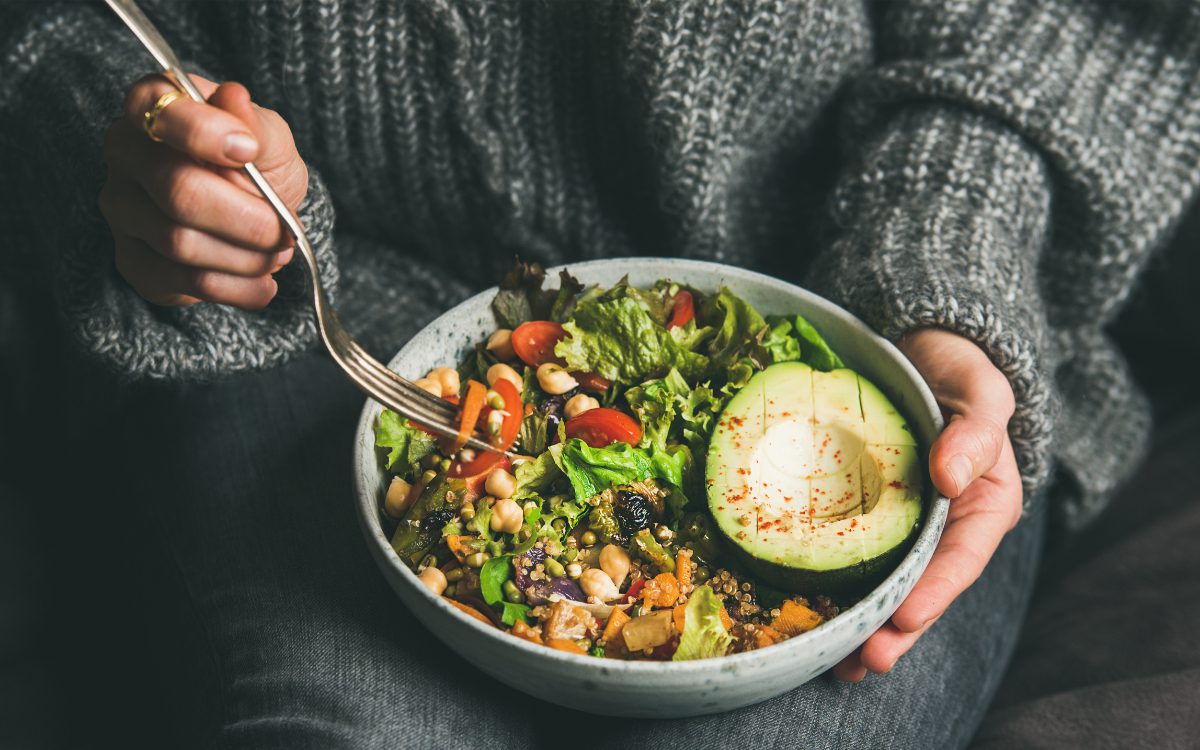Nutrition, exercise, mental health, routines… all things we hear daily on social media and digital platforms. Living a healthy lifestyle can be challenging. One of the first elements to consider when improving your health is food, you are what you eat. There are many diets out there, all of them with the same promise: achieve a healthier body and life. But are they really making us healthier holistically?
The definition of diet is the collection of food that we usually eat. Diet doesn’t necessarily mean eating less, it means the style and types of foods you eat. Many people get confused with the term and automatically have a negative reaction when someone says they are on a diet. For instance, the Mediterranean diet is well known to be one of the healthiest diets in the world. It’s based on a variety of ingredients, healthy fats, sources of proteins, and carbs. The key is to always keep your food colorful, varied, and away from unhealthy fats and sugars.
CBD may help you
CBD and diet are closer than what you think! Cannabidiol has shown to regulate appetite being helpful when transitioning from an old diet to a new eating habit. It can also help to inhibit certain cravings and maintain internal balance. A CBD-infused diet comes with more benefits!
Another good reason to consider CBD for digestion is its high anti-inflammatory properties. Certain foods can cause inflammation, even healthy ones. Food intolerance is very common. It simply means that your body does not agree with certain ingredients. CBD may help to reduce these types of inflammation allowing your digestive system to function properly. A good way to incorporate CBD into your diet routine is as a supplement. There are many options like capsules or oils that are easy to take and have fast absorption.
Where to start?
Start with small changes while creating new eating habits and enjoying the process. Human beings have taste buds for a reason, so make sure you enjoy your food! But first let’s talk about calories, macros, and micronutrients.
Calories. It’s a unit of energy that you will get from eating or drinking something. You don’t have to count the calories of everything but calorie intake is important if your goal is to lose weight. We believe that a holistic and happy diet is the one that you don’t count calories, you eat intuitively while being aware of what’s on your plate.
Macronutrients. These are nutrients that we need in large amounts like protein, carbohydrates, and fats. Meats, potatoes, and nuts are part of the myriad of food under this category.
Micronutrients. These are vitamins and minerals that are very important to support functions like bone growth, immune system, among others. Many people don’t know how crucial micronutrients are but they’re essential if you want to thrive in life and be your healthiest version.
Our tips to maintain a healthy diet (and love it!)
Don’t starve yourself. Do not fall to the yo-yo curse. If you’re hungry, eat. Starving will only make your cravings worse and once you give yourself permission to eat, you will most likely overeat. The secret is to listen to your body and if you’re hungry eat something healthy. If you’re craving sweets, try fruits like strawberries or grapes. Always opt for whole foods.
Reprogram your metabolism. Metabolism is the capacity of processing and transforming food into energy. It’s one major key in weight management and healthy digestion. As we age, our body’s metabolism changes. Notice that when you were younger, you probably didn’t gain much weight from eating the same food vs now. That’s because your metabolism tends to slow down as you get older. But did you know you can reprogram it? A good way to do it is having 5 meals (smaller portions) a day instead of only 3 and snacking during the day. In the Mediterranean diet, Europeans generally have 5 meals a day and almost no snacking.
Be happy with your diet. If your diet is making you sad, obsessed with calories, or anxious it might mean that’s not the right diet for you. Anxiety and depression can lead to eating disorders. All you want is to create a healthy and happy relationship with food, not the opposite. Stay away from crazy diets!
Avoid processed food. Processed foods contain low nutritional value and empty calories. Plus, they are full of preservatives and artificial ingredients that are not good for your body. Eating too much of these foods can lead to obesity. We know they seem convenient, but you can find very easy and simple recipes to make with natural ingredients.
Try smaller plates. If you want to reduce your portions, changing to a smaller plate can help. It can give you the impression of having a full meal even though it’s actually a smaller portion.
Exercise. This is something everyone should do. You don’t need to enroll yourself in the fanciest gym and go 6 days a week. It can be as simple as 1h walk, stretching, or dancing. The key is to keep your body active and functional.
Add pre and probiotics to your diet. Adding pre and probiotics to your diet will help maintain a good gut bacteria balance and healthier digestion. What does that mean? It means better absorption of those macro and micronutrients which will better the basic functions in your body and improve your metabolism.
Lastly, keep yourself motivated and in a good mindset. Your body and your future self will thank you!
All information contained in this article is for informational and educational purposes only and is not intended as medical advice. Always consult a physician or a qualified healthcare provider for any questions regarding your health and well-being.
